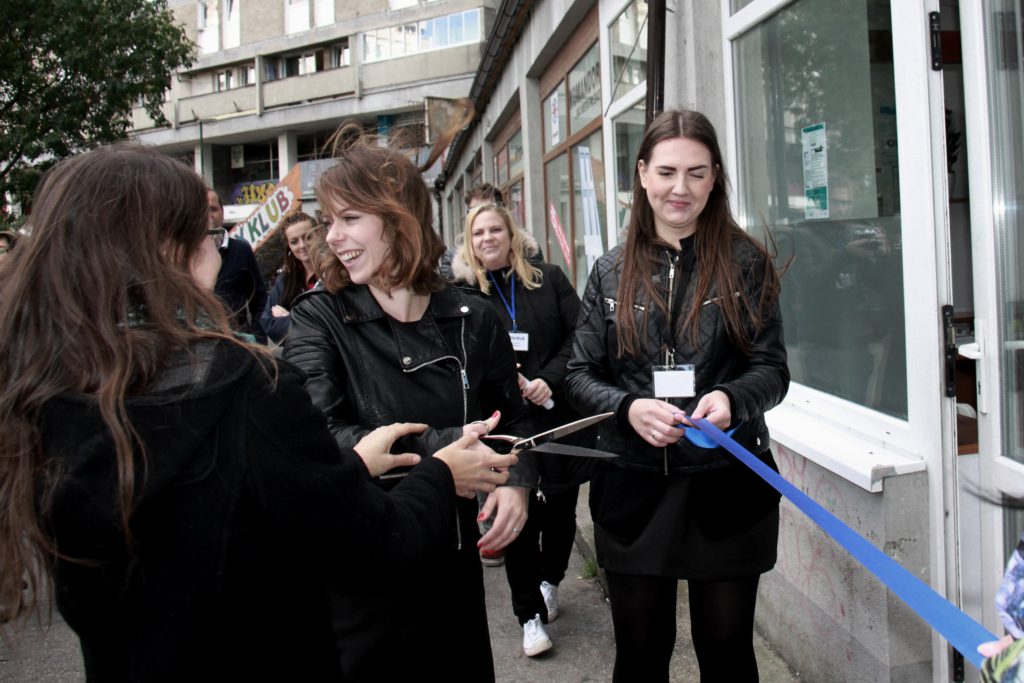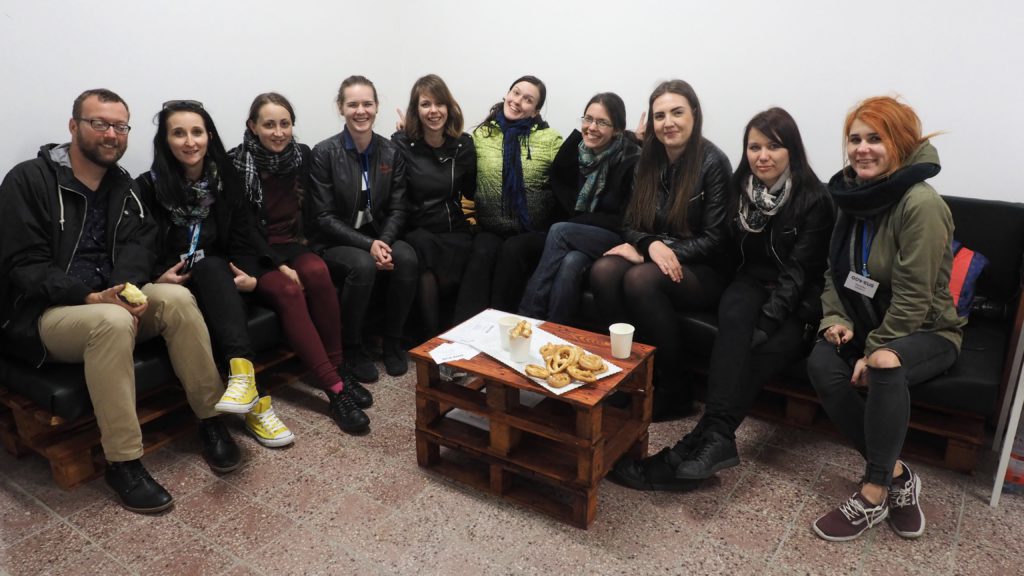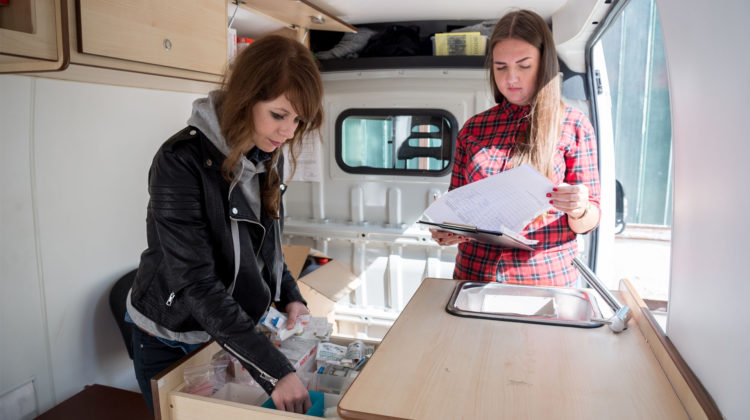Iveta Chovancová is the director of Odyesus, a harm reduction NGO based in Bratislava, Slovakia. We interviewed her about trends in drug policies in her country.
Drugreporter: Odyseus is the leading harm reduction organisation in Slovakia. What kind of services do you provide for drug users and sex workers?
Iveta Chovancová: We do our best to support them through the most comprehensive services possible given Slovakia’s scarce conditions. Starting with needle and syringes programme through outreach services and a newly opened drop-in centre, social assistance, counselling, online and outreach services for young people who use drugs, ending with the only advocacy programme for sex workers run by a consultant from the community in the country. However, almost all the services are completely dependent on year-round unpredictable project funding that causes interruptions and hinders much needed development.
How would you describe trends in drug use and related harms in Slovakia? What are the main trends and challenges affecting your work the most?
The main challenge is the lack of evidence-informed care and continuous national support for potentially harmful interventions masked as prevention. Young people experience sniffer dogs at schools for detection and “just say no to drugs“ campaigns that have never been proven to be effective. We are over the average in the European context for cannabis, meth and ecstasy use among young people, but fall behind in any useful support for them. The lack of systematic funding has caused the trend of closing harm reduction organisations. Although our work was evaluated as highly cost-effective even by the Institute for Financial Policy at the Slovak Ministry of Finance, we are still fighting for services that have to be of a certain standard, if we want to protect public health and human rights.
Spending on drug prevention programs declined by more than 50 percent between 2010 and 2011, and only 5% of the drug budget was spent on harm reduction. What is the situation now, and do you foresee any improvement?
The only positive news has happened thanks to the European funds during the last year – but as you can guess, this is far from the systematic change that is needed in the Slovak drug policy system. The Ministry of Health – that is mainly responsible for the Slovak drug policy – has been supporting the “anti-drug activities“ with around half a million euro per year, while harm reduction services got only 10% of the budget in 2017. We can hardly call this an improvement when another harm reduction NGO was closed last year after 15 years of work due to the lack of financial resources.

Iveta (with the scissors) is opening a new harm reduction centre in Bratislava

Last year you were awarded by the President of Slovakia for your work with people who use drugs and sex workers. Congratulations! Is this a sign that the Slovakian state is now more appreciative of harm reduction than in the past?
Thank you very much, Peter! Actually, Odyseus got the award for its long-term (20 years) contribution from the Youth Council of Slovakia and the visit to the Presidential Palace was part of it. During the audience the President appreciated our work and courage. I wish it was taken as a signal for the rest of our government that the care for people who use drugs and sex workers is part of our society and we need to accept it. Sadly, meeting the President was actually much easier than meeting some of our ministers.
What about drug laws in Slovakia? Do you see any chance that drug use will be decriminalised?
There has been a draft of the law for decriminalisation prepared for about a decade now. Unfortunately, the draft itself is far from perfect, ignoring the development of necessary services and introducing only a very conservative and strict decriminalisation model with punishments for the ‘offence’ of recidivism. However, it seems like this is the first time ever that it actually gets a chance to be approved by the Parliament. So we are yet to see whether the politicians will decide in favour of the more evidence-informed and human rights based changes, or stick with the populism.
In our region, Central-Europe, a major problem is that we don’t have active organisations of people who use drugs. Do you agree? If yes, what can we do about it?
The region definitely lacks meaningful participation of people who use drugs on every level of our drug policies. There have been initiatives and efforts by a few organisations, including Odyseus as well as Podane Ruce from the Czech Republic with the help of professionals such as CoAct and EHRA, to support community mobilisation. I am convinced we should keep on with it and make it a standard. I truly believe that we must endorse all values of harm reduction in our organisations and be determined enough to advocate for the involvement of people who use drugs regularly.
You have been a member of the Steering Committee of the Eurasian Harm Reduction Network (and now the Association) for several years. How do you see trends of harm reduction in the region?
The trends are more than worrying considering political developments in Central Europe which have been openly anti-democratic and pro-Russian. The civil society has been targeted as an enemy with the aim to weaken the voices that are not in line with the official governmental discourse, Hungary being probably the most tragic example here. One of the symptoms of the sick political system and its values is also the fact that harm reduction services are not available or accessible for the majority of people who use drugs in Slovakia or Poland, too. The situation in the region is still not considered serious enough by the western countries or donors. Sometimes, even in the civil society here, it seems like we are waiting for the worst case scenarios to happen and only then we will consider pushing for solutions. Our countries are waiting for the tragedies of the future that are completely preventable now.
What is your advice for young people who are starting to work in harm reduction?
If you are starting in harm reduction in regions like Central Europe, or South-Eastern Europe even, you definitely need to connect with the harm reduction community from abroad in order to grow professionally, be supported, and be inspired. Register as a member of the Eurasian Harm Reduction Association, use every opportunity to read about best practices and news from countries where harm reduction is practiced. Travel around and then come back to your country to make things better together with your communities. And, first of all, actively listen to what people who use drugs have to say to you.
Odyseus team members were trained by us to produce videos and have become member of our global video network – watch this short video produced by them on how they prevent conflicts in the community!
Interview by Peter Sarosi
Photos: Adam Plesník




